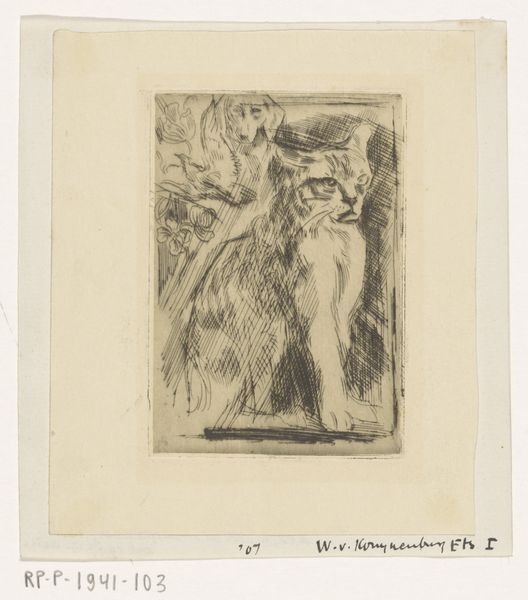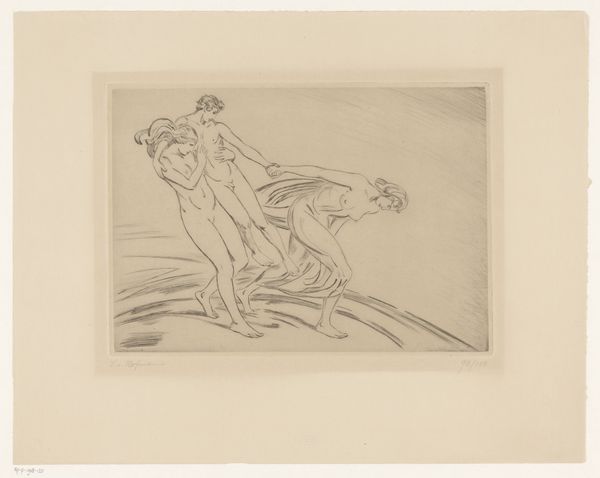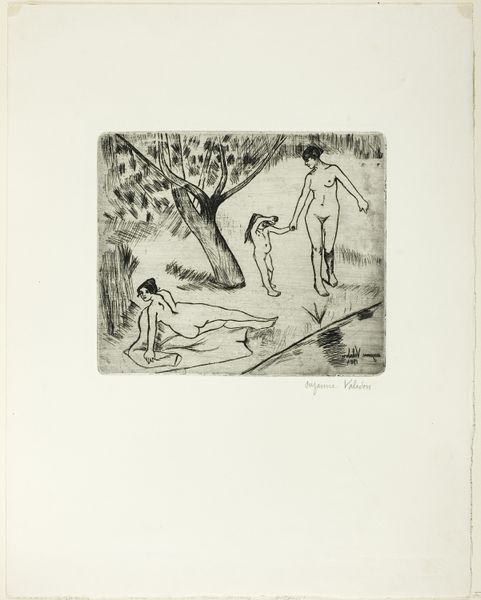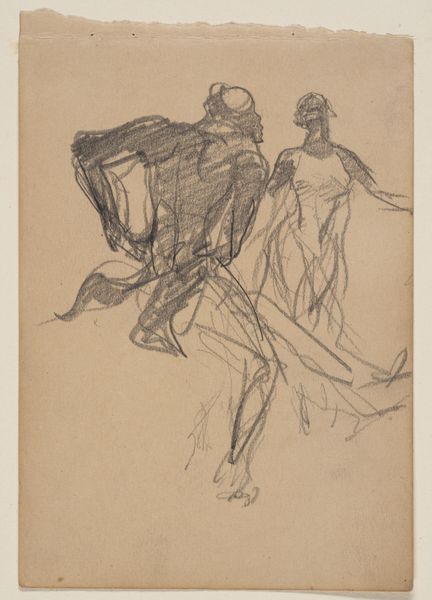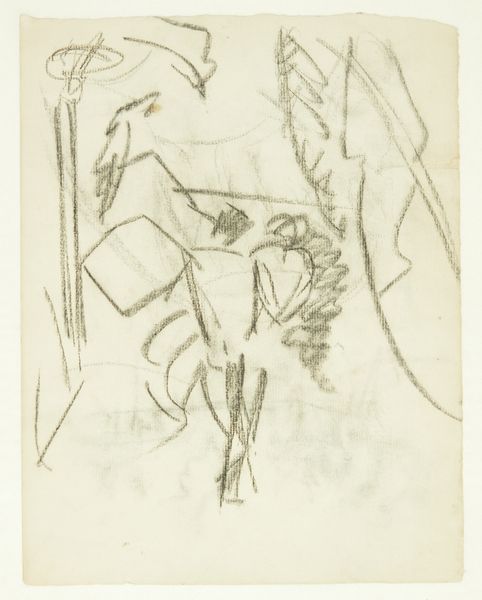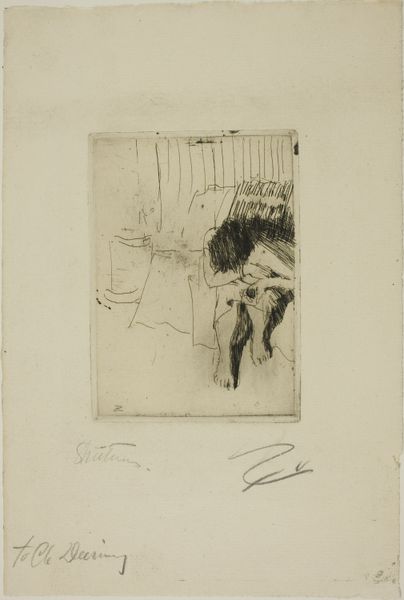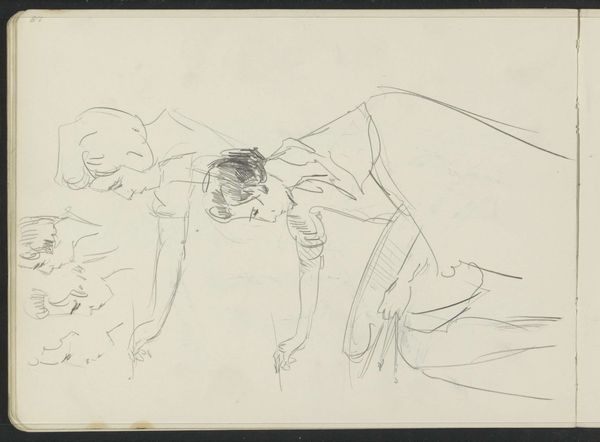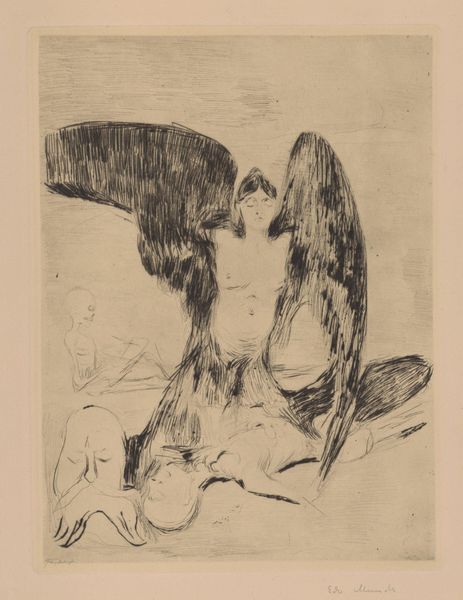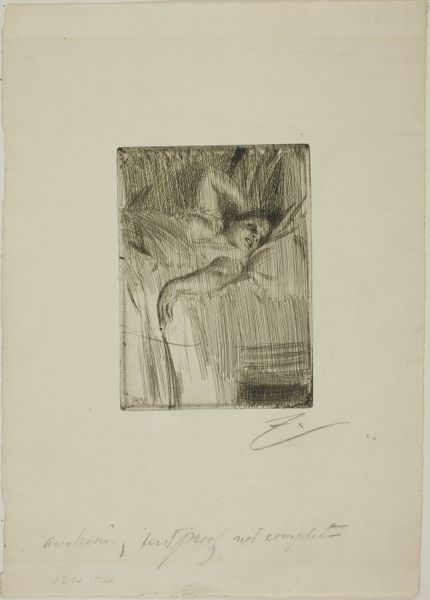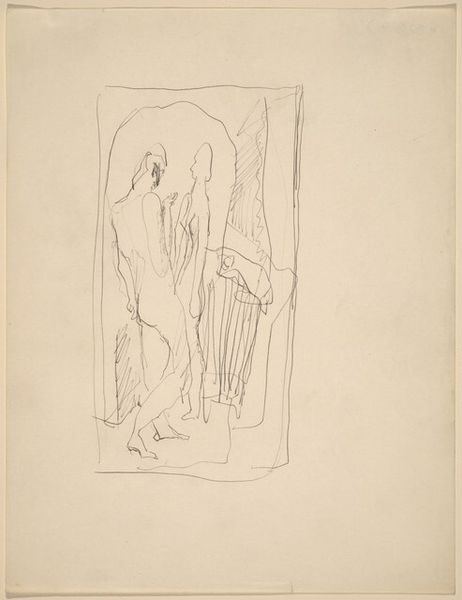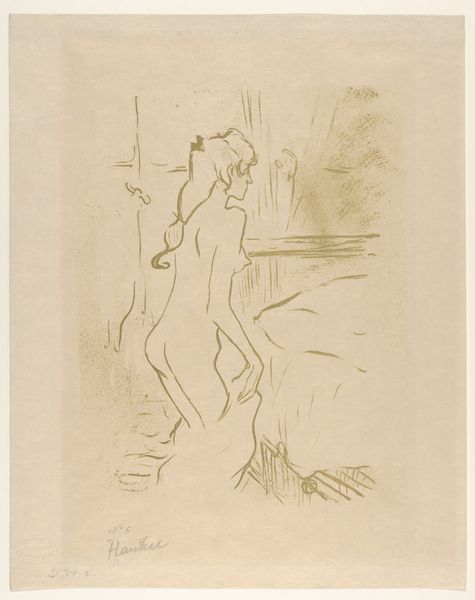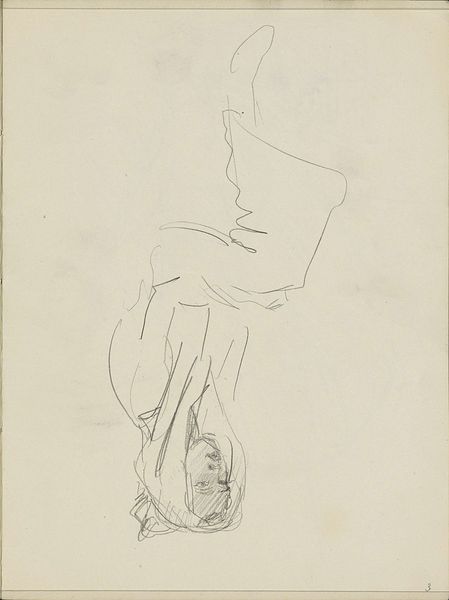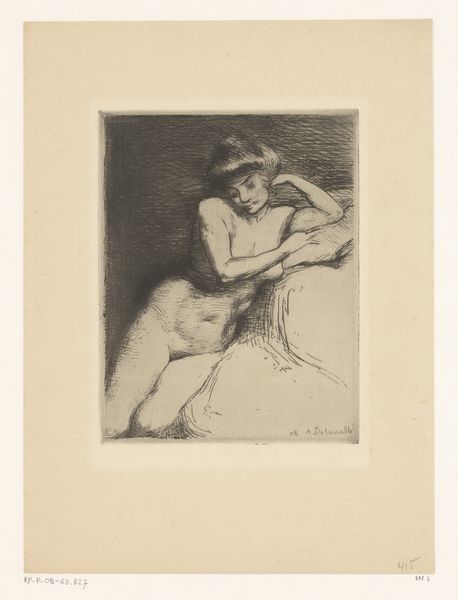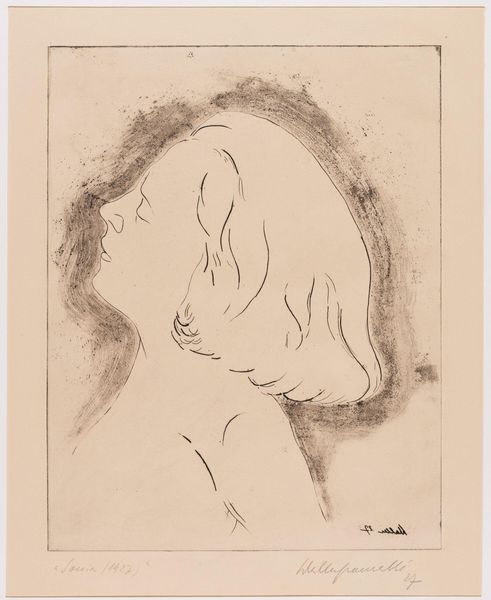
print, etching
# print
#
etching
#
german-expressionism
#
figuration
#
momento-mori
#
line
#
symbolism
#
nude
Dimensions: height 106 mm, width 75 mm
Copyright: Rijks Museum: Open Domain
Curator: I see mortality staring back at me from the abyss! This etching gives me the shivers... I see the grim reaper is very pleased with himself. Editor: Indeed. This haunting 1920 piece by Jan Havermans, titled "Herr! Den Spiegel her: dein Schädel ist alt, nur deine Seufzer sind jung," or "Sir! The mirror here: Your skull is old, only your sighs are young", strikes a particularly evocative note. The style reminds me of German Expressionism's fascination with stark emotionality. Curator: Right! German Expressionism was all about the inner angst made visible, the raw, almost ugly truth laid bare. I feel like Havermans took that and threw in a particularly theatrical flair, something that smacks of a memento mori—a reminder of death. Editor: Exactly, and the skeletal figure so brazenly placed contrasts fiercely with the figure of apparent youth and vitality. Note also the symbolic use of the mirror reflecting, perhaps, not a literal image, but the inevitable aging and decay. This composition presents such powerful symbols, don't you think? Curator: Oh, without a doubt! A mirror reflecting truth instead of beauty. How very harsh. See that line work? I mean, the sparseness of it all only enhances that very bareness. Every stroke feels like another breath closer to… that reclining skeleton! Editor: Havermans truly mastered line as a tool. Each contour seems purposefully hesitant yet decisive. But beyond technique, notice the interplay between text and image? The words themselves almost become another visual layer adding to the complex symbolism here. It serves to remind that sighs are brief while death is long-lived. Curator: Absolutely! And honestly? That cheeky title contrasting with that grim visual…It’s morbidly playful, almost wickedly funny, you know? "Your sighs are young!" A line that wouldn't be out of place in the mouth of death! Havermans clearly understands the gallows humour of our condition. It also suggests the idea of eternal longing in contrast with our temporary life. Editor: It's quite brilliant, I agree. Such stark contrasts invite a multitude of interpretations, making it all the more compelling a work, even a century on. I walk away from it both pensive and exhilarated. Curator: Me too. "Herr! Den Spiegel her" holds a twisted kind of beauty. A sobering mirror, indeed!
Comments
No comments
Be the first to comment and join the conversation on the ultimate creative platform.
